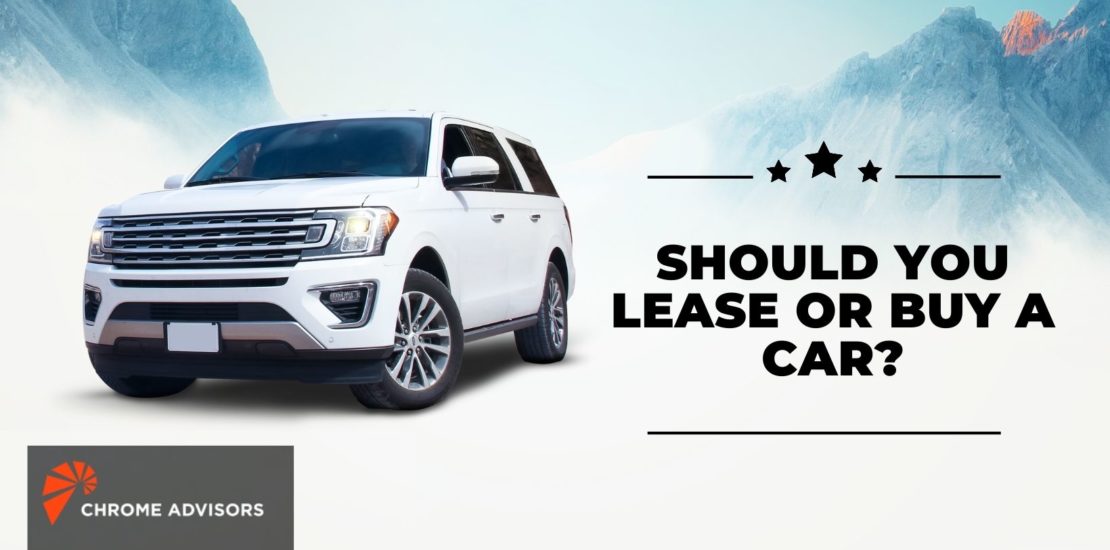- November 2, 2021
- Posted by: Virg Cristobal
- Category: Finance

Leasing it can be quite an attractive option for folks looking for a new car. The monthly payments are typically lower because you are not actually paying any principal. You’re technically just renting or borrowing the car and paying the dealership for the use of that car for a set amount of time. Obviously, buying a car means that you own the car outright and you may have payments if you choose to finance the car or simply take the title and own the car outright.
Pros and cons to buying versus leasing a car.
Pros to leasing a car.
Lower monthly payments. Monthly payments are typically lower than purchasing a car because you’re not paying a principal. You are simply paying to borrow the car. You’re typically repaying the difference between the car’s value when new in the car’s residual or expected value when the lease is up.
Practically maintenance-free. Most leased cars are brand-new so you’re driving a car through most of its low maintenance years. Most of the vehicle is typically still covered by the manufacturer’s new car warranty. This may also include free oil changes and scheduled maintenance.
Higher-priced car. You may be able to drive a higher-priced, better-equipped car than when you could actually afford.
Safety. Most leased vehicles are some of the newest models which will have the latest active safety features.
Ease of use. When you are done with the lease you simply drop it off at the dealership and you won’t have to worry about the car’s trade-in value or go through the hassle of selling.
Cons to leasing a car.
Leasing may actually cost more than an equivalent loan because you’re paying for the car during the time when it rapidly depreciates.
Monthly payments could never end. If you don’t mind that monthly payment or have actually built that into your budget, leasing a car indefinitely, one after the other, will mean your monthly payments will never end.
Limited miles. A lot of lease contracts will specify a limited number of miles and if you go over that limit you may have to pay a hefty excess mileage penalty. This could be up to $0.50 for every additional mile so it’s important to know exactly how much will be using the vehicle and if you fit within the lease terms.
Maintenance. Even though maintenance is covered under a lease in most cases, the owner will need to maintain the vehicle in good condition. Any damage or excess in wear and tear may have additional charges. Dealerships require you to bring the car back in the same condition as it left the show room minus the miles you use, of course.
Trade-ins can be tough. If you find you don’t like the car you’ve chosen to lease or you can afford the payments, you could be stuck with termination fees and penalties.
Fees. There may actually be a fee when you turn in the vehicle at the end of the lease so double check all of the terms to make sure what you’ll have to do once the lease is up or if it needs to be terminated in the middle.
Pros and cons to buying a car.
Pros to buying and owning a car.
You own the vehicle and get to keep it as long as you want.
You’re free to sell or trade-in your vehicle at any time even if you still own money on it. Any money you do get from the sale can be used to pay off the loan balance or even put down money on another car.
You’re free to drive as many miles as you want but the higher the mileage, the more depreciation the car may undertake. The same goes for wear and tear. You can run the car into the ground if you want and nobody will care except for you.
Cons to buying a car.
Any upfront cash to purchase the vehicle will usually include a down payment, taxes, registration, and other fees.
Loan payments may be higher than lease payments because you’re paying off the entire purchase price of the vehicle plus any interest and finance charges.
You will have to deal with selling or trading in your car when you decide you want a different vehicle.
The vehicle will depreciate but the cash value is yours, not the dealerships.
There are good reasons to buy and lease a car but it all depends on your goals, outcomes, financial stability, monthly payments, and what you plan to do with the vehicle. Leasing is a great option for some while others, buying might be more appropriate. Regardless, it’s important to know both sides of the coin to determine which works best for you.
FOr more information on how to spend your money wisely, contact Chrome Advisors today.
More Chrome Advisor Information:
4 Ways Young Rising Professionals Can Care for Aging Parents
Equity Compensation for Employees
10 Reasons Young Professionals Should Have a Last Will and Testament